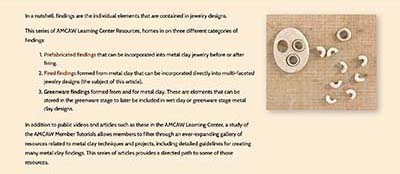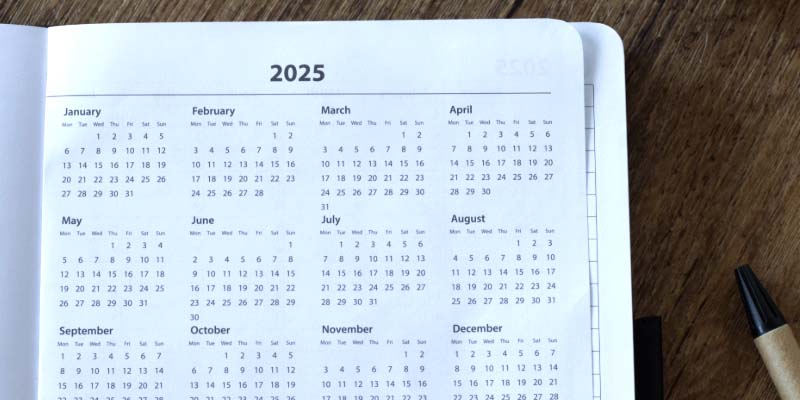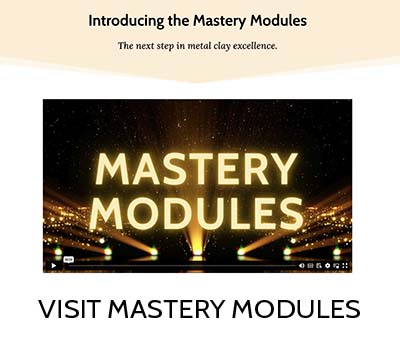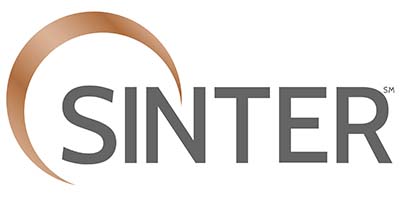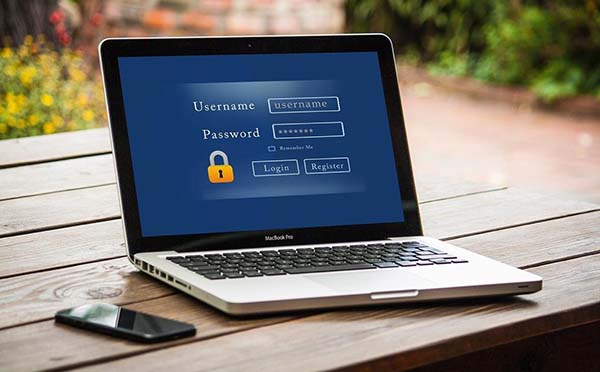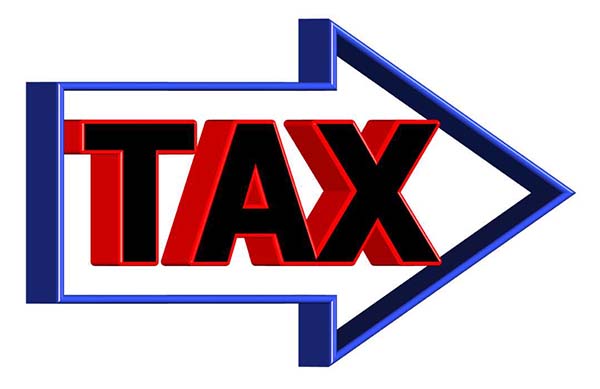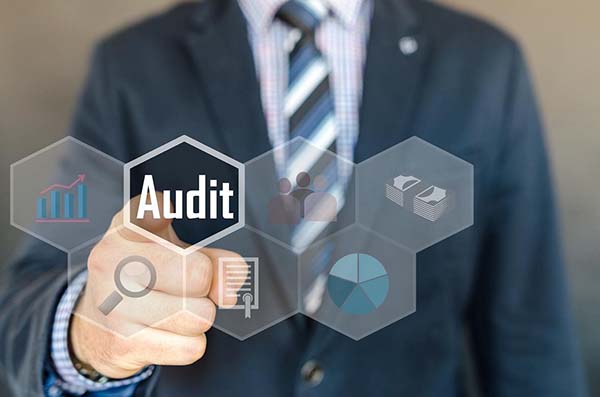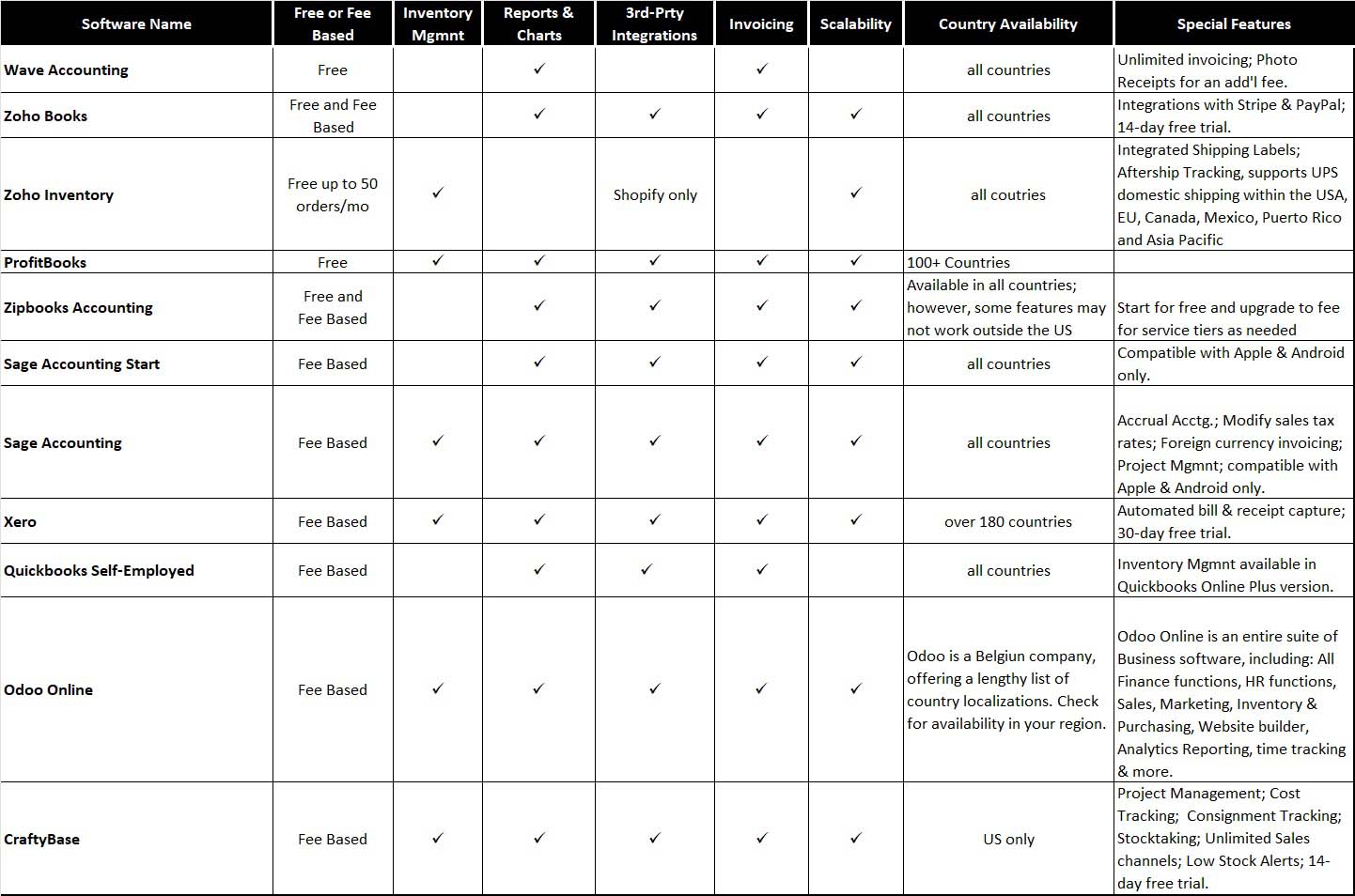Accounting System Features
What kinds of features should you consider when shopping for an accounting system?
While there are very few software options customized for handmade microbusinesses and solopreneurs, most are general accounting in nature and can be modified or customized to suit the needs of your business. We, as metal clay artists, are accustomed to adapting tools from other industries, such as the dental industry, to name just one example. Software tools are no different, as long as they meet your needs and your wallet.
Listed below are a few Accounting and Inventory Management software features to get you thinking about what you may want to consider in determining your own needs.
- Single or double-entry accounting
- Income and expense tracking
- Customized invoicing
- General ledger (profit and loss)
- Accounts payable and receivable
- Banking integration, the ability to automatically import your bank transactions so you can categorize them.
- Third-party integrations for payables, payroll, etc. or for sales channels
- Point of sale integration (POS) / credit card and online payment links
- Expense management, time and materials tracking, pricing
- Report generation with graphic display (bar charts, pie charts, etc.)
- Tax management (sales tax, depreciation, tax deductions, etc.)
- Ease of sharing with your bookkeeper or accountant
- Inventory/asset management of both raw materials and finished work in inventory (with photos)
- Contract management (retail/wholesale/consignment)
- Budgeting
- Project management
- Traceability and compliance
As you begin shopping for an accounting software solution, you will undoubtedly think of other features that may be helpful to you. Here is a basic side-by-side comparison of free and low-cost accounting solution ideas.

